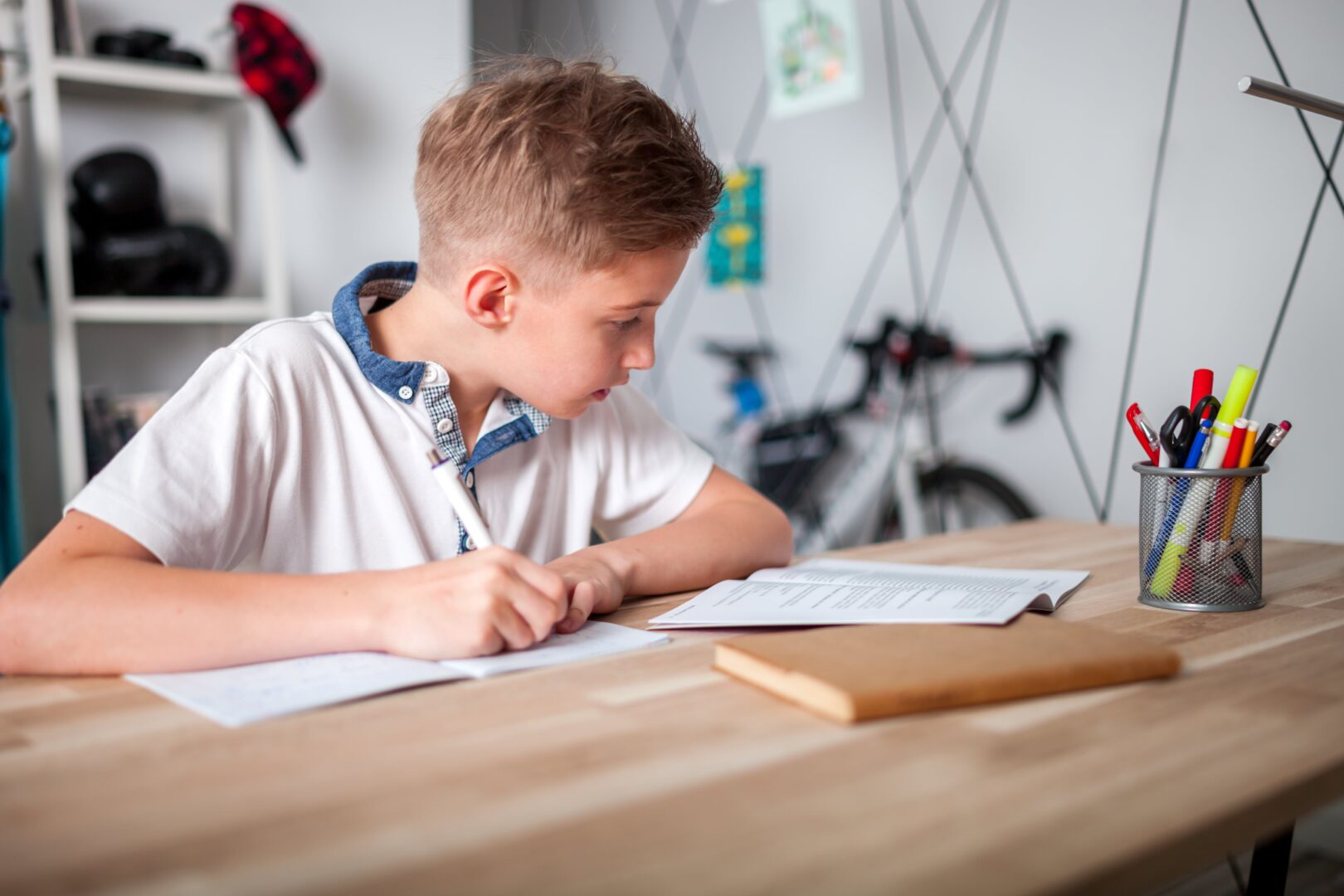With so much information available at students’ fingertips, it’s easier than ever for students to learn by themselves.
Self-study is becoming a more and more popular way to engage students with what they are learning in class. Students have the ability to access so many resources that now, learning can happen anywhere, anytime—not just in the classroom.
What Is Self Study?
Self-studying is a learning method where students direct their own studying—outside the classroom and without direct supervision. Since students are able to take control of what (and how) they are learning, self-study can be a very valuable way for many students to learn.
Self-study and traditional classroom learning can be used together to help your child get the most out of his or her learning experience. Together, these methods help students learn and retain information better, helping boost comprehension, grades, and motivation.
The Importance Of Self-Study
Self-studying is a great method students can use to enhance their learning experience, whether they are studying for a course or learning about a topic for fun.
Using self-study, students are able to go beyond simply learning what their class textbooks and instructors teach them. By practicing self-study, they are encouraged to further explore topics they are interested in, developing stronger study skills as a result.
One of the major advantages of self-study is that students can take control over their own learning. And when students have control, they become even more interested in learning.
That’s good news for everyone!
The Benefits Of Self-Study For Students
1. Students learn more effectively. Exploring a topic on his or her own encourages your child to actively engage with the information. Self-studiers are able to think about topics more deeply and make connections between what they are learning. And when students are engaged (and excited) about what they are learning, they’re able to remember it better.
Self-study also helps build study skills your child can use to explore new topics or tackle challenging schoolwork.
2. Students discover more about the topics they’re studying. Self-study is all about searching out new information on a topic your child is interested in. Seeking out this information themselves gives students a chance to learn more about that topic (rather than just what they are taught in class).
3. It can boost students’ self-esteem. As students do more self-study, many become more confident learners. They are able to see themselves as an independent person who is able to learn new things without anyone helping them. This can be a major motivation boost for students.
4. Students can learn at their own pace. Self-study allows students to take learning at their own pace, focusing on areas they are most interested in (or want to understand a bit better). This helps reduce feelings of frustration, anxiety, or boredom that students may struggle with in a classroom setting.
5. Encourages curiosity. Curiosity is one of the biggest (and often overlooked) pieces of motivating students to learn. When students aren’t engaged with what they are learning, they absorb less of the information. They study to memorize rather than understand. Self-study allows students to choose something they are interested in and excited to learn about, leading to a more effective learning experience
Help Your Child Become An Effective Self-Studier
1. Find resources on the topic. Help your child seek out resources that provide more information on the topic he or she is learning about. Books, articles, and educational videos are all highly effective ways to increase his or her understanding of new concepts.
2. Talk about what your child is learning. Have a conversation with your child about what he or she is learning, and which topics your child is most excited about. Talking about what he or she is learning is a great way for your child to boost comprehension and motivation to learn (and share!) more.
3. Use different study methods. Every student has his or her preferred study method, and that’s no different when self-studying. The great thing about self-study is that your child can choose what works best for him or her. Encourage your child to try different study techniques, like reading books, watching videos, creating mind maps, or some other activity that helps your child process the information.
4. Have the required tools. Being prepared is the number one secret to becoming a great self-studier. Ensure your child has all the study tools he or she needs to make the most of each self-study session. Tools your child will need for the most effective self study session include:
- A study area—such as a good study desk similar to spacious study table in Singapore, free from distractions and clutter
- A computer—so your child can read, watch, and listen to online resources
- Study tools—including pens, highlighters, and paper so your child can create organized study notes
See More Great Study Resources
How To Stop Procrastinating And Start Studying
9 Things To Do The Night Before Your Next Test
8 Memory Techniques For A Better Study Session







